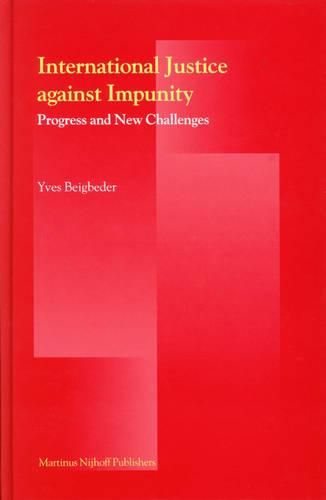Readings Newsletter
Become a Readings Member to make your shopping experience even easier.
Sign in or sign up for free!
You’re not far away from qualifying for FREE standard shipping within Australia
You’ve qualified for FREE standard shipping within Australia
The cart is loading…






Evidence shows that national justice has been slow, ineffective or unwilling to judge major political and military leaders responsible for genocide, war crimes and crimes against humanity on a large scale. Hence the justification for international criminal justice. This book reviews the achievements and limitations of the International Criminal Tribunals for the former Yugoslavia and Rwanda, and the creation of mixed national/international courts: the Special Court for Sierra Leone and the Cambodia Tribunal. The major, unexpected and promising judiciary innovation is however the creation of the International Criminal Court in 1998, supported by the UN, European Union members and other countries, effectively promoted by NGOs, but strongly opposed by the USA. The Court will have to show that it is a fair and valuable instrument in fighting impunity at the international level. Not a legal treatise, this book combines historical, legal and political elements in a highly readable text on the development of international criminal justice, which should be of interest to both the academic community, international organisations and concerned observers.
$9.00 standard shipping within Australia
FREE standard shipping within Australia for orders over $100.00
Express & International shipping calculated at checkout
Evidence shows that national justice has been slow, ineffective or unwilling to judge major political and military leaders responsible for genocide, war crimes and crimes against humanity on a large scale. Hence the justification for international criminal justice. This book reviews the achievements and limitations of the International Criminal Tribunals for the former Yugoslavia and Rwanda, and the creation of mixed national/international courts: the Special Court for Sierra Leone and the Cambodia Tribunal. The major, unexpected and promising judiciary innovation is however the creation of the International Criminal Court in 1998, supported by the UN, European Union members and other countries, effectively promoted by NGOs, but strongly opposed by the USA. The Court will have to show that it is a fair and valuable instrument in fighting impunity at the international level. Not a legal treatise, this book combines historical, legal and political elements in a highly readable text on the development of international criminal justice, which should be of interest to both the academic community, international organisations and concerned observers.